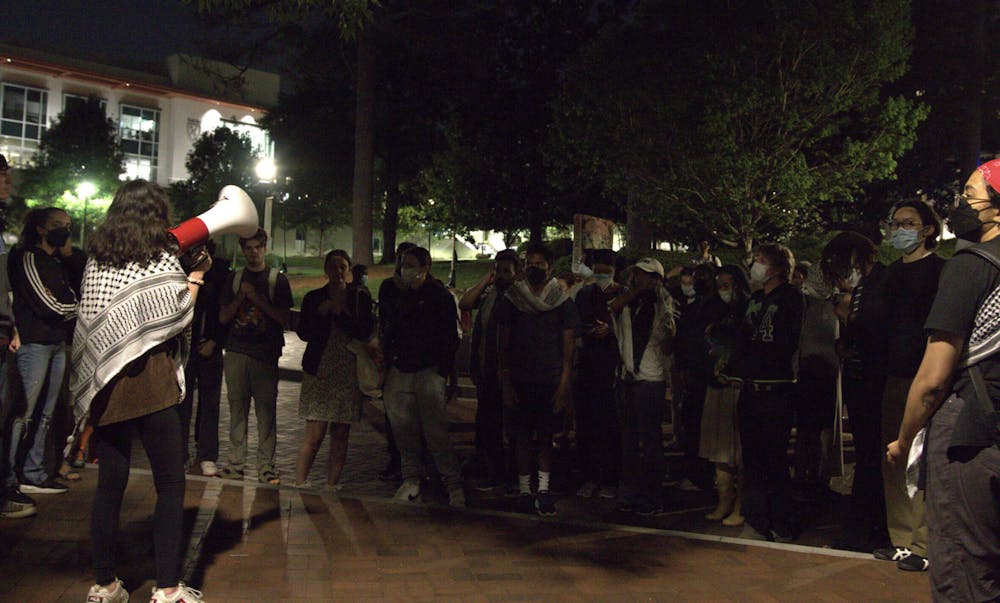The Emory University Senate Committee for Open Expression finished its review of the addendum to the Respect for Open Expression Policy and released a report to members of the senate on Nov. 30. The report, which Committee for Open Expression Chair Ilya Nemenman and Melissa Shane (25C) prepared, made recommendations to alter the current policy to permit “multi-day and overnight reservations of buildings and grounds.”
The committee, which is composed of students, faculty and staff, found that the addendum University President Gregory Fenves introduced on Aug. 27 is broadly consistent with the current Respect for Open Expression Policy and First Amendment but “will likely cause confusion in enforcement.”
The review came after the addendum drew criticism from senate leaders and the Student Government Association, the latter of which passed a resolution in September calling the addendum “unacceptable” because Fenves did not consult students, the Committee for Open Expression or the senate before codifying the addendum.
“Although the Addendum generally aligns with First Amendment principles as a set of time, place, and manner restrictions, certain provisions—particularly the blanket ban on protests between midnight and 7 a.m.—place undue burdens on the expressive rights of community members,” the Committee for Open Expression report stated.

Fenves’ addendum indicated that protests from midnight to 7 a.m. and overnight outdoor camping are prohibited and that encampments, building occupations and building takeovers are prohibited on Emory property.
The Committee for Open Expression report stated that the addendum fails to precisely define an encampment, protest, overnight outdoor camping and building takeover.
“Unclear definitions leave content-neutral enforcement open to interpretation, creating risks for all members of the Emory Community,” the report stated.
In addition, the committee noted that its most “significant” concern centers around protest restrictions from midnight to 7 a.m. The report stated that there can be “legitimate” reasons to protest at these times and questioned what constitutes a protest.
“How does one distinguish a protest at 12:01 a.m. from a group of students walking across university property while wearing politically themed t-shirts?” the report stated.
The committee recommended that the University revise the addendum “to better balance the University’s operational needs with the Open Expression rights” of the Emory community.
Additionally, the report proposed that the University use a more “flexible” system that allows multi-day and overnight reservations of University property. The committee added that this system should approve events based on “content-neutral criteria,” meaning that the approval of the reservation does not depend on what the group is protesting.
“Such a system would provide a balanced approach, protecting the University’s interests while preserving the community’s right to engage in Open Expression activities,” the report stated.
Assistant Vice President of University Communications Laura Diamond wrote in an email to The Emory Wheel that the University has no comment on the proposed policy changes.
The University Senate’s agenda for its Dec. 4 meeting states that it will discuss and vote on a resolution to accept the Committee for Open Expression’s recommendations.
If the senate passes the resolution, University Senate President George Shepherd will send the recommendation to the Board of Trustees, which holds the final authority in establishing new policies at the University.

Spencer Friedland (26C) is from Long Island, N.Y. While not working at the Wheel, he is a member of Emory Disability Rights, Education Activism and Mentoring and the Franklin Fellows program. In his free time, he can be found watching the New York Yankees or going to the movies.






